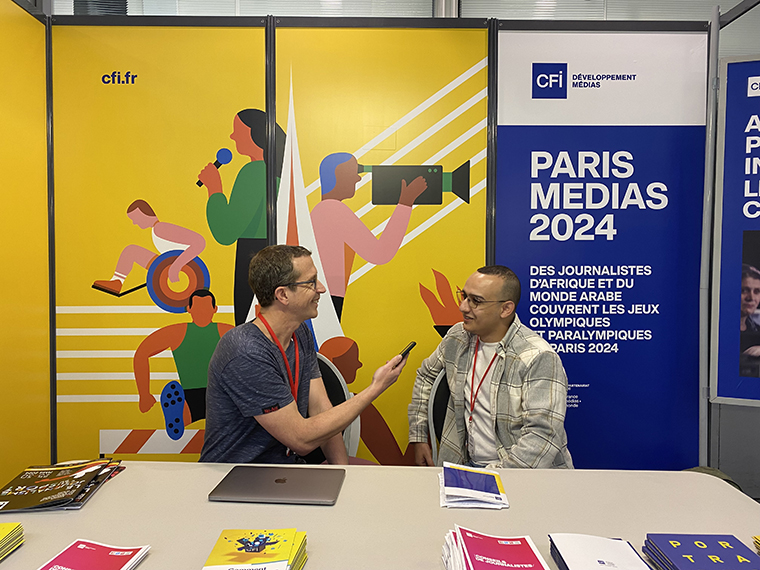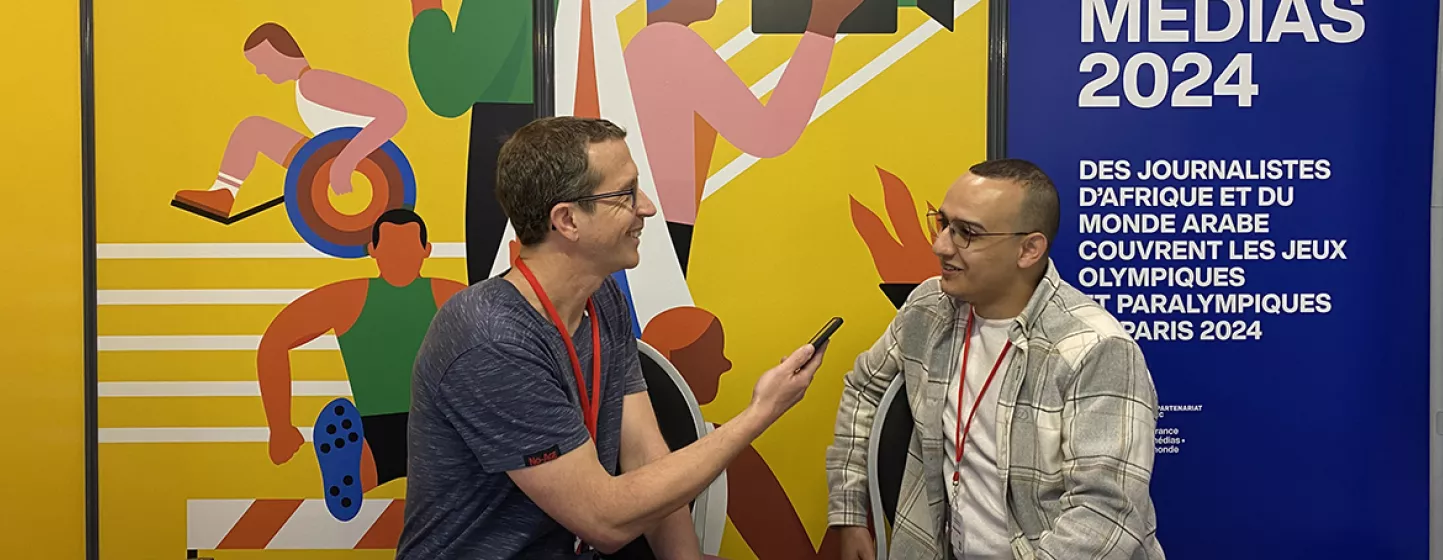Three questions for... Soulaimane Bakbach
A freelancer working for several media outlets and the Arabic-language Editor-in-Chief of Taja Sport, a platform that specialises in women’s sport, Moroccan journalist Soulaimane Bakbach is a beneficiary of the Paris Médias 2024 project.
Speaking with Emmanuel de Solère Stintzy, he describes the societal issues surrounding sport in view of the biggest sporting event of the year: the Paris 2024 Olympic and Paralympic Games.
Why and how did you become a sports journalist?
I was four years old when I saw Zidane score two goals against Brazil in the 1998 FIFA World Cup final on television. That was the day I fell in love with sport and the idea of becoming a journalist! I worked a great deal to achieve that dream, but I had several difficulties initially, the most significant of which was the lack of specialist schools in Morocco. I still obtained a bachelor’s degree in journalism at the Higher Institute for Journalism and Information in Marrakech. Then, at the age of 28, I became the Arabic-language Editor-in-Chief of the Taja Sport platform, which covers women’s sport in the Middle East and North Africa (MENA) regions.
As a civic-minded sports journalist, how do you view your role in Moroccan society?
I try to focus on parasports and young boys and girls living in villages in Morocco. I produce investigative articles and in-depth reports to help people understand sport as a whole, not just the latest sports news. A sports journalist must take an interest in politics, economics, laws, institutions etc.
In Morocco, after the men’s team reached the semi-finals of the FIFA World Cup in Qatar in 2022, the women might also be able to pull off a good performance at the next Olympic and Paralympic Games in Paris, given that they have won a lot of medals in previous Games.
We do not talk enough about them in our media. However, this could improve Morocco’s image abroad, especially with regard to equality between women and men, a subject in relation to which many things have changed over the past 20 years. Personally, I find women’s sport interesting as there are very few of us who produce in-depth reports on female athletes, even though there are myriad lenses through which to cover the subject.

What have you learnt from the International Agora for Journalism in Tours (25 to 30 March 2024), in which you are participating today? How are you going to apply what you have learnt to cover the upcoming Paris Olympic and Paralympic Games with CFI?
This Agora is introducing me to new ideas that are far removed from stereotypes and current ways of thinking. The public are keen to see new approaches. They not only need to know who won, but also what happened before and after the event as well as behind the scenes. In short, this Agora is an opportunity for me to discover other points of view in relation to sports journalism, which are naturally going to differ from my own. Thanks to my contacts, I then plan to make video reports or articles for CFI, not only on Moroccan female athletes, but also on Algerian, Iraqi or Egyptian women at the Paralympic Games. In the MENA region, some believe that people with disabilities cannot do this or that.
However, on the contrary, I am convinced that they can do a lot of things, such as winning medals, even more than the so-called “able-bodied” athletes! Through the content that I produce, I will also try to promote equal media coverage for female athletes from the MENA region and those from Europe, for example. Now is the time to change things up a bit.
